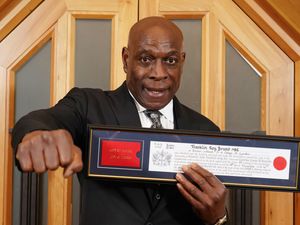Majority think nurses and care workers are not paid enough, poll finds
More than four in 10 also said they thought nurses were right to reject a 5.5% pay award from the Government.

The majority of people in Britain think nurses and care workers are still not paid enough, a survey has found.
The poll of 1,053 British adults, carried out exclusively for the PA news agency, found 71% thought care workers were paid too little, up 8% from April 2023.
Almost a fifth (19%) said they thought they were paid the right amount, while just 3% told the survey care workers are paid too much.
Some 60% of people also said they think nurses are paid too little, up 3% from last April.
However, more than a quarter (28%) said they are paid the right amount, and 5% said they are paid too much.
Last month, members of the Royal College of Nursing (RCN) in England rejected the Government’s pay award of a 5.5% rise by two-thirds, in a record high turnout of around 145,000.
The pay award was announced by the Chancellor at the end of July, shortly after Labour won the general election.
Of the people surveyed by Ipsos, some 41% said nurses were right to reject the offer, while 29% said it was the wrong decision.
RCN general secretary and chief executive Professor Nicola Ranger, said: “The public is right that nursing staff are paid too little and it’s why they rejected the Government’s pay award.
“Our profession is highly-skilled and we deliver the vast majority of patient care but we are not properly valued.”
When announcing the rejection, the RCN stated its vote was not for more strikes, with the union required by law to hold a statutory postal ballot to authorise further industrial action.
Nurses staged strikes in December 2022 and into 2023 in dispute with the government over pay.
The Ipsos poll found Britons were split on if they would support nurses if future walkouts were to happen.
Some 38% said they would back nurses going on strike if the Government does not offer them a higher pay rise in the future, while the same proportion said they would oppose industrial action.
Prof Ranger added: “Nobody, in my profession or the public, wants to see more nursing strikes.
“The Government wants to reform a ‘broken NHS’, but it cannot do that without addressing the crisis in nursing. If not, the NHS and social care will continue to be racked by unsafe staffing levels.”
The survey comes as the RCN urged the Government to “fix a broken nurse education model”.
Analysis by the union of Ucas data found the number of people studying to become nurses fell in every region in England.

Prof Ranger said: “The prospect of huge debt and lack of financial support is putting off the nurses of the future, threatening to leave patients without the highly trained nursing professionals they desperately need.
“Nursing is an incredible career, but to fix a broken NHS, the Government must fix a broken nurse education model.”
A Department of Health and Social Care spokesperson said: “We know what nurses have been through in recent years and how hard it is at the moment. That’s why, despite the bleak economic inheritance, the Chancellor awarded them with an above-inflation pay rise.
“This Government wants to work with nurses to take the NHS from the worst crisis in its history, to get it back on its feet and make it fit for the future. We will work with NHS staff to turn this around together.
“We introduced legislation for the first ever fair pay agreement for adult social care workers to properly reward hard-working staff and improve recruitment and retention. In order to deliver this, it is vital to first consult widely to ensure the policy is right for workers, providers and people who draw on care and support.”





